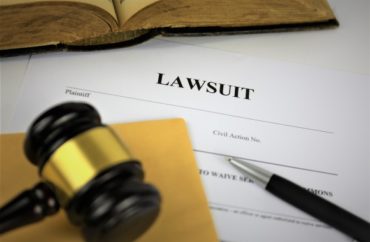
One school superintendent has switched off over 400 machines
Air ionization technology that a huge number of schools have installed to help fight COVID failed surface disinfection tests conducted by aerospace giant Boeing.
The airplane firm decided not to use the technology in its jets, stating in a report that “further study/development of air ionization by the industry is required before the technology can be incorporated for effective disinfection of airplanes in response to global pandemics caused by respiratory viruses.”
Several legal actions against air ionization device manufacturers have cited the Boeing report and are currently winding their way through the courts, reported Kaiser Health News on June 8.
Boeing tested ionization devices’ effects on surfaces, not air, and found that it “was unable to replicate supplier results in terms of antimicrobial effectiveness,” the report said.
The “supplier” in that case was Global Plasma Solutions, which markets a variety of air ionization and filtration devices.
The lab also found other advertised results that it couldn’t replicate, including “a 96.24% reduction in Staphylococcus aureus in 30 minutes.”
Boeing found “no reductions” for that particular bacteria after an hour, Kaiser reported.
A GPS spokesman told Kaiser that the Boeing tests are “inconclusive,” and pointed to other outside tests that are more favorable.
The spokesperson also noted that Boeing speculated that the company’s devices might have some success cutting down transmission of the common cold.
Boeing’s study and the lawsuits have caught the notice of some schools, which are heavily invested in ionization and related technologies to help fight the spread of COVID in the classroom.
“One California superintendent…cited the lawsuit [against GPS] and switched off that district’s more than 400 GPS devices,” Kaiser reported.
When it pulled the plug on the ionizers, the Newark, California school district had already sunk over $350,000 into the technology.
“For such a big chunk of that [money] going to something potentially ineffective…is really frustrating,” said Megan McMillen, vice president of the Newark Teachers Association.
Others schools could follow or even join in on the brewing class actions against air ionization manufacturers, if further testing doesn’t demonstrate a greater effectiveness for the devices.
A previous Kaiser report found “more than 2,000 U.S. schools had bought air-purifying technology, including ionizers. Many schools used federal funds to purchase the products.”
MORE: Journalists spread pseudoscience that any large campus gathering is a ‘super spreader’ for COVID
IMAGE: Ulf Wittrock / Shutterstock
Like The College Fix on Facebook / Follow us on Twitter






Please join the conversation about our stories on Facebook, Twitter, Instagram, Reddit, MeWe, Rumble, Gab, Minds and Gettr.